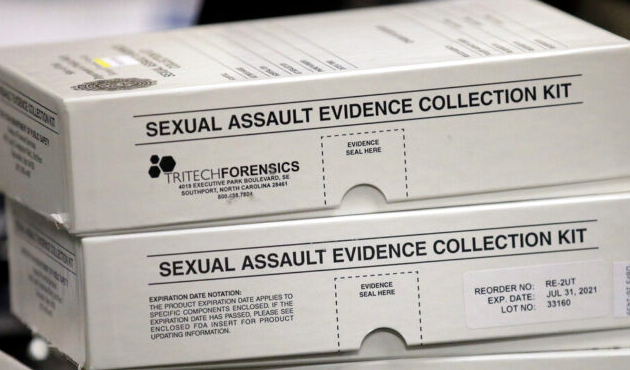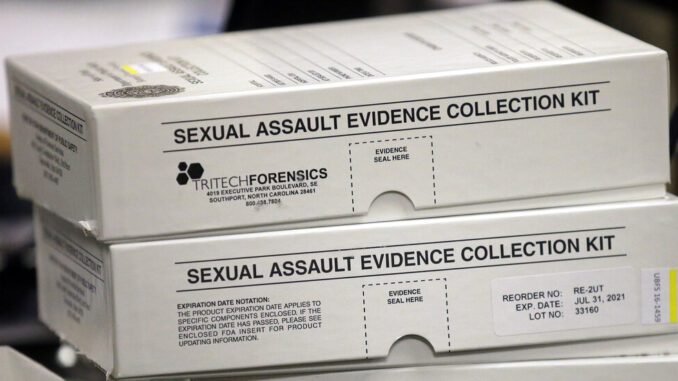MCDONALD: Poor police work in North Carolina is letting rapists go free
The chain of custody is one of the first elements a good defense attorney will scrutinize. If he or she can prove a break in the chain of custody, the evidence is not admissible at trial
July 18, 2022
There is a sexual assault taking place right now. Every 68 seconds, someone in America is sexually assaulted. More than 97% of perpetrators get off scot-free.
A major reason is mismanagement of physical evidence. It's time for police work in North Carolina to enter the modern era — and employ the latest technology for collecting and processing evidence. Otherwise, rapists will continue to go free.
The evidence in a sexual-assault investigation is typically the product of a six-hour physical exam conducted by a medical professional, who searches the victim's body for any material — like DNA — that could help identify the perpetrator. The information and material gathered is known as a "sexual assault kit."
As a survivor of sex trafficking and current advocate for victims, I know firsthand how invasive and retraumatizing these exams can be. But we believe that the information collected will help deliver justice.
That faith is often misplaced. In far too many cases, the evidence in sexual assault kits is never used.
The state of North Carolina, for instance, reported a backlog of more than 11,000 untested kits in 2022. Every unprocessed kit represents a crime left unsolved — and a perpetrator likely to attack again.
When sexual assault kits are tested and used as evidence, another layer of dysfunction can appear. Court cases often require proof of the "chain of custody" for a piece of evidence. Prosecutors need to be able to prove the whereabouts of a rape kit, for example, as it travels from the emergency room, to the police, to the crime lab, to the prosecutor, and then to the courts. That evidence may be on the move for years.
The chain of custody is one of the first elements a good defense attorney will scrutinize. If he or she can prove a break in the chain of custody, the evidence is not admissible at trial. And if a defendant challenges the chain of custody, even a minor mistake can lead to an acquittal.
Long backlogs and mismanagement of evidence don't just impact convictions. They also serve as powerful disincentives for women who wish to report sexual assault.
Today, any given sexual assault has just a 31% chance of ever being reported to the police. Why go through an invasive, demeaning, physical exam if the evidence is going to end up in a storage closet — or if mismanagement by police is going to let the rapist off on a technicality?
There's no excuse for losing track of evidence in 2022. We can look at our phones to determine how many houses away our Amazon packages are. Our financial and health records are online, available on demand. But some police departments still rely on faulty software or even paper files to track evidence. And multiple states, including Massachusetts and Texas, do not require police to keep track of clothing, blood, and urine in a rape kit.
Simple upgrades — from implementing barcodes and RFID tags, combined with good software — will bring evidence-collection and management up to an appropriate technological standard nationwide. It will require significant investment by federal and state governments. But newer tools can maximize the impact of those public dollars.
We have the technology to get more perpetrators of sexual assault off the street. We need North Carolina law enforcement agencies to deploy those tools so victims aren't telling their stories in vain.
Christine McDonald is an internationally recognized author, speaker, and advocate for victims of human trafficking and sexual assault.




